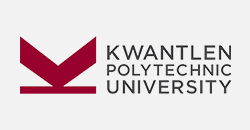BASc. in Sustainable Agriculture

Degree:Bachelors
Program Overview:
The Bachelor of Applied Science in Sustainable Agriculture degree is unique to North America and is distinguished from other agriculture degree programs by providing a broad scope of study related to sustainable food production as an integral and fundamentally critical element of sustainable human existence. The first two years of the degree program emphasize foundational understanding of our natural and social environment as well as concepts inherent to sustainable agriculture and food systems. The latter part of the program immerses students in living agricultural laboratories — the teaching and research farms. Through participation in crop and animal production and year-round agro-ecosystem management classes, as well as community/land-based research and internships, the undergraduates become confidently knowledgeable of the scientific, practical and business elements of sustainable land-based, management-intensive, alternate market farming and food systems.
Admission Requirements:
GPA: 2.8 or above
PTE, Score of 61 or higher, taken within the last two years from the term of admission
IELTS, overall band of 6.5 or higher, with a minimum 6.0 in each band, taken within the last two years from the term of admission
Tuition Fee: Click Here
Learning Outcomes:
The curriculum is designed in recognition of the need for both practical and academic training within the new, powerful movement in sustainable agriculture. Students will be immersed in a setting which fosters experiential learning and explores personal interests and inclinations. During four year Bachelor degree program, students will work to realize three major learning outcomes:
The ability to grow fruit and vegetable crops within a sustainable ecological context. A full spectrum of experiential field-based agricultural courses are offered in Year 3 which, by necessity, follows a complete crop cycle beginning in the spring and extending through summer into the fall. These applied courses function as a mechanism to bring the theoretical concepts and principles of sustainable agro-ecosystem design, function, and management to practical realization.
Develop the business, sales, and marketing skills necessary to manage a sustainable agricultural farming business. The development of these skills is facilitated by the inclusion of a broad base of foundational courses, supplemented by a multidisciplinary business management course in Year 4.
Develop practical, problem solving and research skills as well as an understanding of government, economic, and business environments and policies needed to address issues of and advance sustainable agri-food systems, as related to employment in government, non-government organizations, and the private sector.
Who Studies Sustainable Agriculture?
Individuals interested in gaining a practical understanding of sustainably growing food for their communities as well as those who wish to see this type of local-regional agriculture and food system integrated fully into society. This program will appeal to students who recognize that environmental stewardship and community involvement are critical to our food system and who wish to be part of a new approach to agriculture. Students looking for creative, hands-on work on farms and in the community will thrive in this program.
Career Opportunities
Sustainable, local food production is a rapidly developing component of sustainable community/ regional planning and development that is on the minds of the public and governments alike. Program graduates will be sought after in areas as diverse as planning, resource management, politics, government, non-government organizations, related business, and production agriculture.
Program Intake: Fall, Spring & Summer
For More Details Visit Us.